Manchester Arena Inquiry: Covid delays new terror law plan
- Published
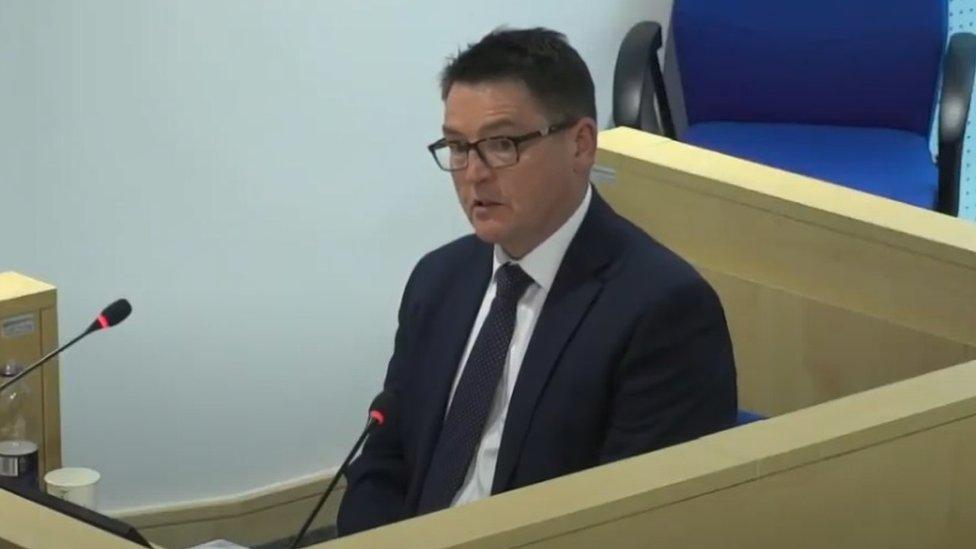
Shaun Hipgrave was giving evidence during the 35th day of the public inquiry into the Manchester Arena attack
Plans to introduce a new law to improve safety and security at public venues and spaces has been delayed due to Covid-19, an inquiry has heard.
The proposed legislation was drawn up following terrorist attacks in 2017 including the Manchester Arena bombing.
It would require owners and operators to put in place measures to keep the public safe from a terrorist attack.
But a consultation to canvass opinion has been put on hold, the inquiry into the arena attack has heard.
The principal purpose of the proposed legislation would be to impose a duty on those responsible for the public's safety when they are in a publicly-accessible location, the inquiry heard.
Figen Murray, the mother of Martyn Hett, 29, who was killed in the bombing, is campaigning for Martyn's Law, which among other things is calling for venues and local authorities to have action plans against such attacks.
The government's "protect duty" plan, which builds on Martyn's Law, had been intended to go to consultation this spring.
Shaun Hipgrave, who works as a director in the Office for Security and Counter Terrorism (OSCT) within the Home Office, described the delay as "frustrating" but added "there's no point doing a consultation if we don't get a meaningful response".

Top row (left to right): Alison Howe, Martyn Hett, Lisa Lees, Courtney Boyle, Eilidh MacLeod, Elaine McIver, Georgina Callander, Jane Tweddle - Middle row (left to right): John Atkinson, Kelly Brewster, Liam Curry, Chloe Rutherford, Marcin Klis, Angelika Klis, Megan Hurley, Michelle Kiss - Bottom row (left to right): Nell Jones, Olivia Campbell-Hardy, Philip Tron, Saffie-Rose Roussos, Sorrell Leczkowski, Wendy Fawell
A counter-terror policing chief told the inquiry the legal duty to protect the public in crowded public places would be "transformational".
Lucy D'Orsi, deputy assistant commissioner at National Counter Terrorism Police HQ, said she did "not think that it should be discretionary as to whether protective security is considered by a business or a site or an operator".
"I firmly believe that a protect duty would be transformational for the UK and it would be as impactive as to protective security as GDPR [General Data Protection Regulation] has been for data handling," she said.
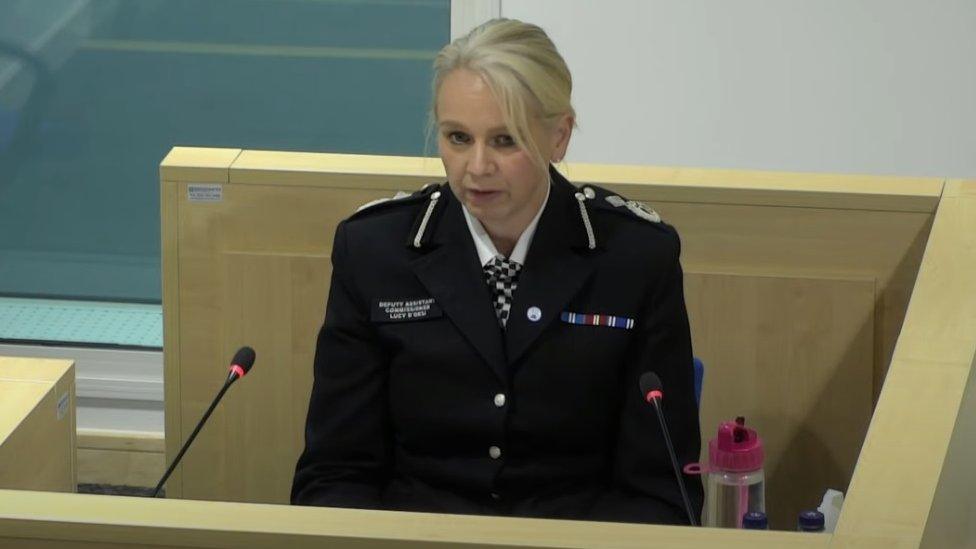
Deputy Assistant Commissioner Lucy D'Orsi said the "absence of clear legislation does make it difficult"
Mrs Murray has called for the government to speed up the consultation and earlier told the inquiry she felt it was "absurd" there was legislation for how many toilets a venue must have and how food must be prepared but nothing that holds venues to having basic security in place.
Twenty-two people were killed and hundreds more injured when Salman Abedi detonated the bomb at the end of an Ariana Grande concert on 22 May 2017.
The public inquiry is examining the background to the attack and if any opportunities to prevent the attack were missed.
The inquiry continues.

Why not follow BBC North West on Facebook, external, Twitter, external and Instagram, external? You can also send story ideas to northwest.newsonline@bbc.co.uk, external
Related topics
- Published11 November 2020
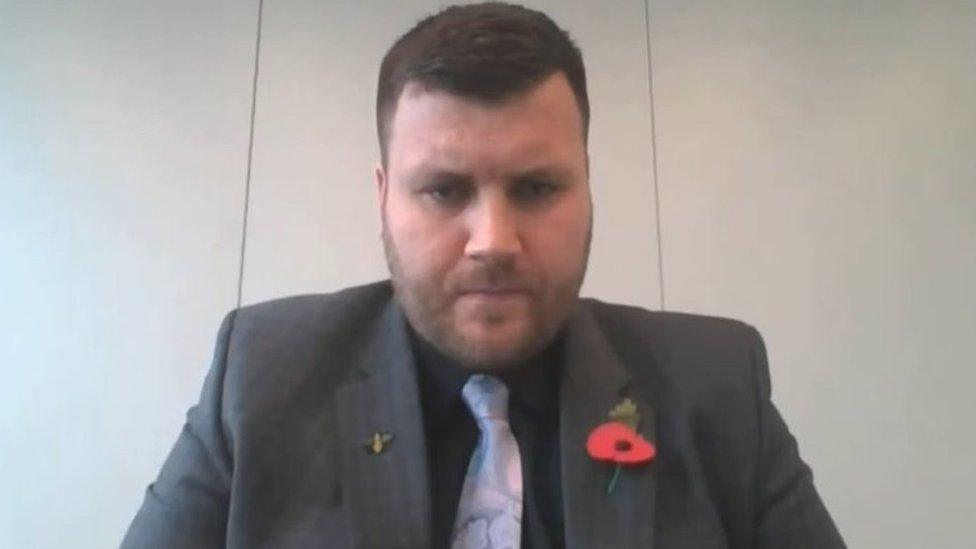
- Published10 November 2020
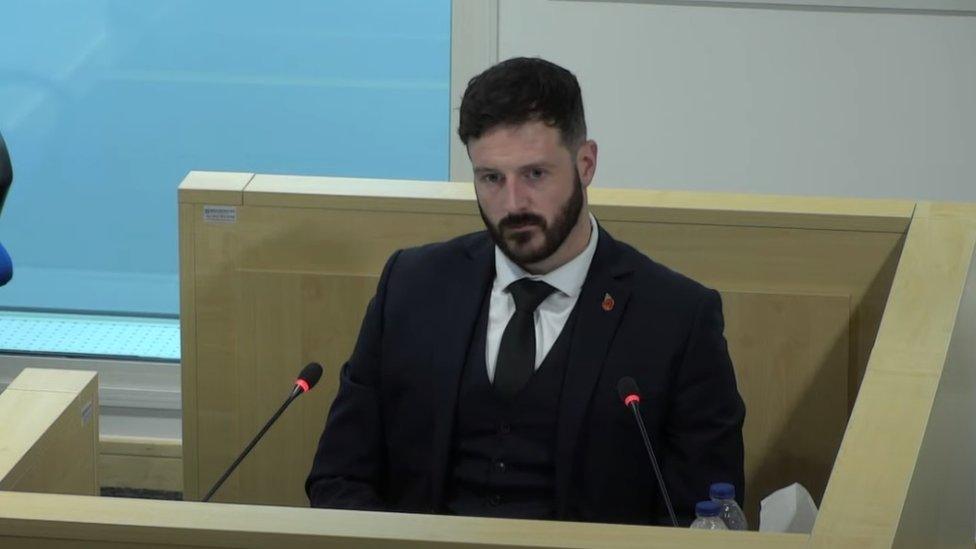
- Published9 November 2020
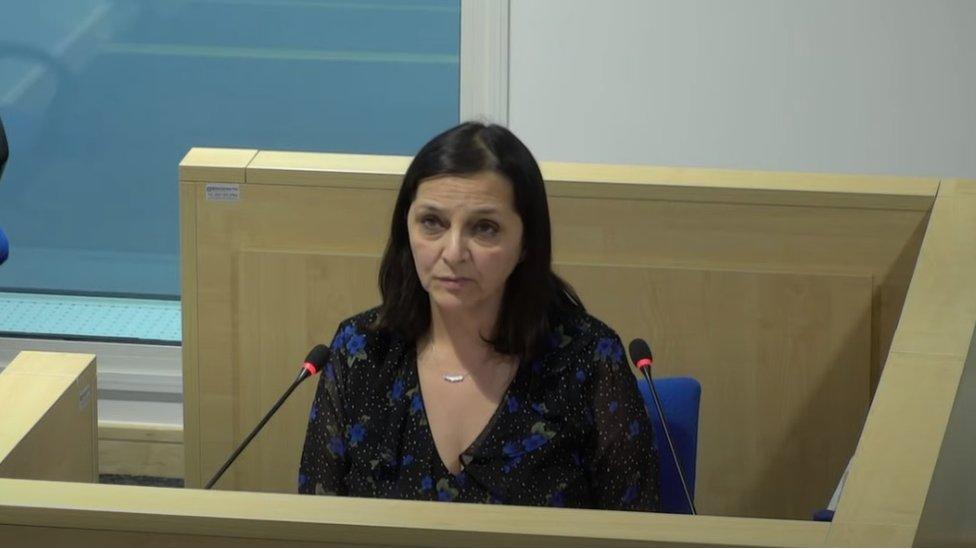
- Published4 November 2020

- Published3 November 2020
